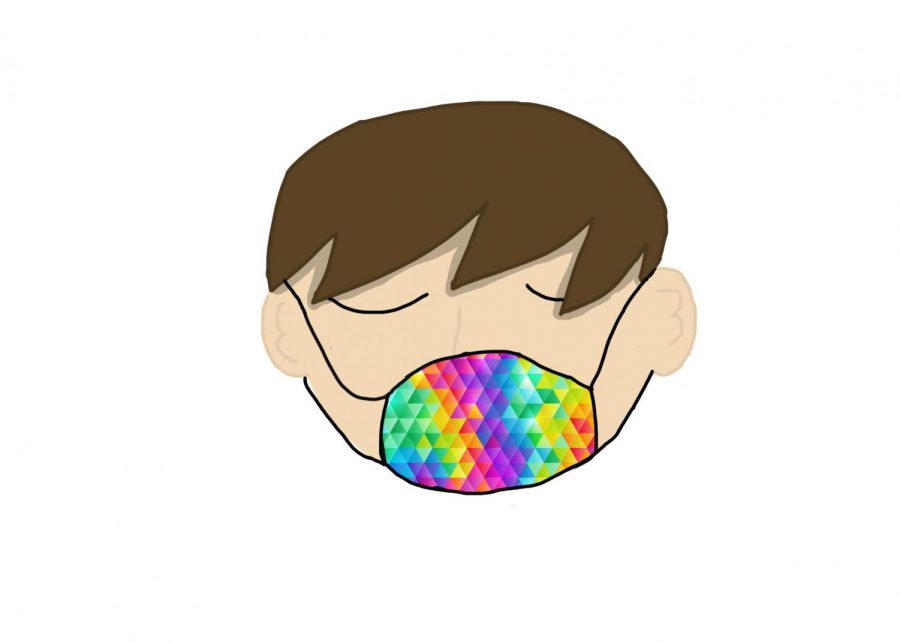The economy in ruins: How small businesses have been affected by COVID-19
It’s an ordinary day in an ordinary town. People walk on the sidewalks and cars roam the streets. Businesses line the streets and there are parks with kids playing on a playground with their parents watching them carefully as well as people having a picnic or taking a walk.
But there’s a problem.
Many stores, shops, and restaurants are closed and dark inside. There are signs up and down the streets saying “Closed due to Coronavirus,” “Sorry, this location is temporarily closed,” or “Due to COVID-19, we are closed.” As people walk the streets, masks cover their faces; a sense of fear and sadness lingers in the air, but so does a sense of urgency.
“We now have 1,275 new cases announced today, meaning 1,275 Kentuckians have just tested positive,” Kentucky Governor Andy Beshear said Saturday, October 3 in a news release. “This is our highest number of cases ever. This is the highest number of cases per week ever and we have one more day that will add to the count, and it shows that we have to do better.”
A few months ago, it would be difficult to fathom why businesses are closed, why everyone is wearing masks, and what these cases are in reference to. But in this day and age, COVID-19 is a worldwide pandemic, and everyone knows what’s happening.
Currently, there are over 40 million people worldwide infected with COVID-19, the United States (U.S.) taking the lead with the number of infections — eight million people. Over a million people in the world have died because of this virus and once again, the U.S. takes the lead with over 220 thousand deaths.
Since February of this year, COVID-19 has taken over the world. Almost every country has reported thousands or millions of cases in their region. Schools and businesses have closed down everywhere, and people are losing their loved ones to this deadly illness. COVID-19 has taken so much, but one main thing it has stolen is people’s livelihoods, especially from small business owners and their employees.
Amy Bass, the owner of a fine-paper boutique called Nota Bene in Pittsburgh, Pennsylvania, notified her customers back in March that she had to close the retail side of her shop for two weeks. She was stunned and felt like she was in some bad horror movie as she came into her store. Every business was dark inside; it was a literal ghost town. She also said that some of her customers who were in crisis; weddings were canceled or postponed, and events that were going to happen did not.
As COVID-19 became more and more of an issue, businesses had to change the way they operated. Restaurants had to stop letting people dine-in and were forced to serve their customers via delivery and takeout only. Many companies had to lay off their employees. Some companies had no choice but to close their entire business for an uncertain amount of time.
A WalletHub survey from April discovered that 87% of small business owners had said that their business was suffering from the pandemic, while 35% said that their business couldn’t last more than three months in the conditions at the time.
Some states were, and still are, struggling more than others. Hawaii has taken the lead for most affected small businesses, with Nevada in second place and South Dakota in a close third. The top three states who are the least affected are the District of Columbia, Massachusetts, and Pennsylvania.
A paper from back in late July mentioned that massive layoffs had already occurred just a few weeks into the crisis. The paper also said that the pandemic caused massive dislocation among small businesses within several weeks after its onset, prior to the availability of government aid through the CARES Act. At the time of the paper being published, 43% of businesses had closed temporarily due to COVID-19. Businesses reported their active employment had reduced by 47% since January. In places like New York City, 54% of firms were closed and employment was down by 47%. Industries like retail, arts, entertainment, personal services, food services, and hospitality businesses reported a decline in employment exceeding 50%. Now, this crisis has lasted for over half a year and is expected that less than 50% of businesses will be open in December — a still strikingly low number.
Before the pandemic happened, small businesses accounted for half of private-sector jobs and two-thirds of new jobs created from 2000 to 2017.
The impact that COVID-19 has had on businesses varies. Small companies with less than 20 employees were harder hit and more affected than larger companies.
COVID-19 has affected the way people live their daily lives since February and has taken a toll on many things, one of the main things being the economy. Back in late March, almost 3.3 million Americans filed for unemployment benefits because of layoffs induced by COVID-19. More than 99% of all businesses are small businesses and employ around half of the U.S. workforce. Unfortunately, most small businesses lack the cash to endure a month or more of unprecedented interruption such as what COVID-19 has brought about.
The pandemic has taken a toll on our daily lives since early this year. A cure for COVID-19 has still not been found but is in progress. Some businesses have lost huge amounts of money due to the time they were forced to be closed. Hopefully, by this time next year, a cure for COVID-19 will be found and we can return back to the time before a deadly virus struck our world and changed many people’s lives.
Citations
https://smallbiztrends.com/2020/04/impact-of-coronavirus-on-small-businesses.html
https://www.nytimes.com/2020/07/13/business/small-businesses-coronavirus.html
https://wallethub.com/edu/states-with-the-most-affected-small-businesses-due-to-coronavirus/72977
https://www.businessinsider.com/coronavirus-business-impact
https://ehsdailyadvisor.blr.com/2020/03/how-coronavirus-is-affecting-small-business/
https://www.wlwt.com/article/kentucky-reports-highest-number-of-new-virus-cases-ever/34261225
Your donation will support the student journalists of Highlands High School. Your contribution will allow us to cover our annual website hosting costs.



